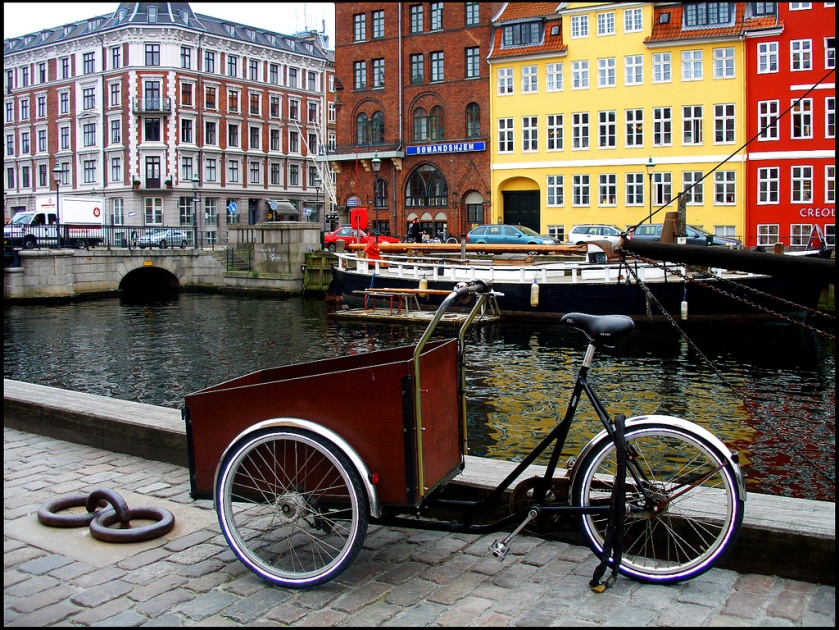 Last September my family vowed to abandon its car for the rest of 2018. We kept to that promise and genuinely changed habits as a result.
Last September my family vowed to abandon its car for the rest of 2018. We kept to that promise and genuinely changed habits as a result.
We’d no longer dream of driving somewhere like Westfield shopping centre, despite the appeal of its massive car park. I jump on my bike to get to places I can’t walk. My children now walk surprisingly long distances and plead to take the train on longer journeys. Indeed, planning complicated public transport journeys has become a popular and contentious family pursuit.
But as 2018 creeps along, the car persists. This is partly because we haven’t had time to sell it. Though I am sure we’d make the jump sooner if there were incentives to scrap it or relinquish our parking space.
But the main reason for our procrastination is the car still seems essential for some local journeys, which is a great shame considering we live in Hackney, where two thirds of residents do not own cars.
One of these journeys is to the local pool for a weekly swimming class. A friend warned this would happen: that we’d regret giving up our car once we start ferrying children to various clubs and activities around the area.
My daughter’s gymnastics class is fine: there’s a handy local bus and a pleasant walk along quiet residential streets. We chose a football class for my son in our local park so we could walk there. But getting to the nearest indoor swimming pool is tricky since it isn’t connected by bus; it’s a little too far to walk after school; and my three primary-aged children won’t fit on my bike. Suddenly the lure of the car, the pool’s car park, or a taxi seem inescapable.
Another option that has crossed my mind, as I watch neighbours sail past in them, is a cargo bike. The trouble is, they are expensive (a Babboe Big family cargo bike costs £1,500 new), plus we don’t have space to park one. But why couldn’t we share one with neighbours?
Shared cargo bikes are starting to appear across London.
- Waltham Forest rents cargo bikes to help residents on school runs, shopping trips and local deliveries.
- London Green Cycles rents cargo bikes from Camden.
- Greenwich Council are soon to launch community cargo bikes with London Green Cycles.
- CarryMe Bikes in Hackney has six cargo bikes for families to hire.
- The Family Cycling Library lets families test out and borrow cycling kit.
- Wheely Tots rents a cargo tricycle for a nominal fee from Manor House, north London.
- Zero Emissions Network offer one-week free trials for residents.
These are valuable and welcome schemes, but we need more of them to become viable alternatives. After all, a cargo bike is only attractive for regular trips if it’s on your doorstep. Cities such as Vienna and Cologne have set up city-wide schemes, which are even more appealing since operators do not charge set rental fees but ask users to donate towards maintenance and spare parts.
These schemes also benefit from being embedded in communities. The Kasimir scheme in Cologne, for example, is managed by cafés, residents and social institutions, that take it in turn to host the bikes. These sharing schemes also work best, say experts, when built on strong social networks.
It is is difficult to say whether communities in London would warm to such schemes. I get the feeling that people are too-often wedded to private belongings. Sharing might also be difficult if families need bikes for similar activities at similar times, such as taking children to school in the morning. But I’m convinced more families would give them a go if they were available.
There are a number of things that Transport for London and councils could do to encourage residents and operators to buy and share bikes. For example:
- cargo bikes could be integrated into London’s existing bike-sharing scheme;
- councils could provide sheltered, secure, on-street parking spaces for cargo bikes;
- plus financial subsidies to cover the costs of purchasing communal cargo bikes. Paris and Vienna offer citizens 600 and 800 Euros (respectively) towards the purchase of a cargo bike. Community cargo bikes receive 100% subsidisation in Vienna.
Our car has ceased to be an object of desire, but unfortunately it’s still an unwanted necessity. But this could be remedied with a wider selection of alternatives. Just as the car park outside the pool entices me to drive, a cargo bike parked at the end of my street is all the incentive I need not to.
Image from Laura K Gibb, Flickr of a cargo bike in Copenhagen where cargo bikes are common due to high tax rates on cars.
If you live in Haggerston, you are welcome to borrow mine.
LikeLike
Thanks Andrea, that is very kind. I’d love to give one a go and sample some neighbourhood sharing! I’ll send you an email.
LikeLike
Interesting! Cargo bikes look a great idea. Would adverse weather conditions put you off using using a cargo bike with the family? Come to think of it we didn’t always have a car when I was a child; I just had appropriate clothing. And granny certainly didn’t drive so she and Dave used nothing but public transport. We just accepted the limitations. It’s a shame that when more and more people could afford cars in the 60s and enjoyed the new found freedom and privacy that public transport had to be cut back drastically .That final leap to ditch the car? Cost of car rental needs to come down considerably to facilitate those trips where a car is necessary i.e. camping.
LikeLike